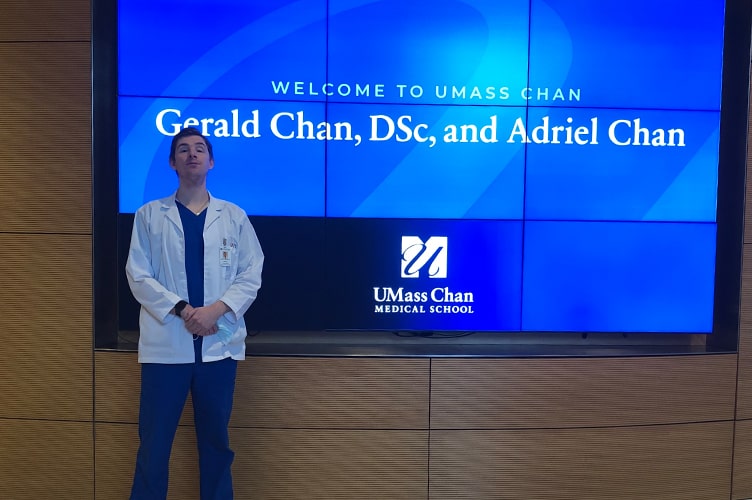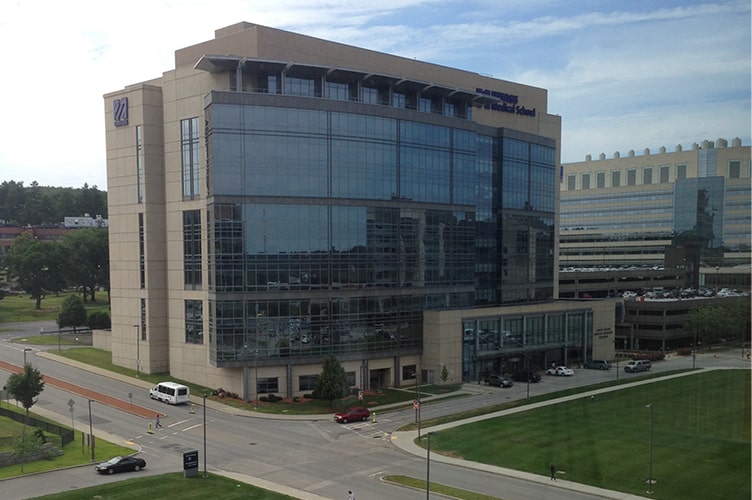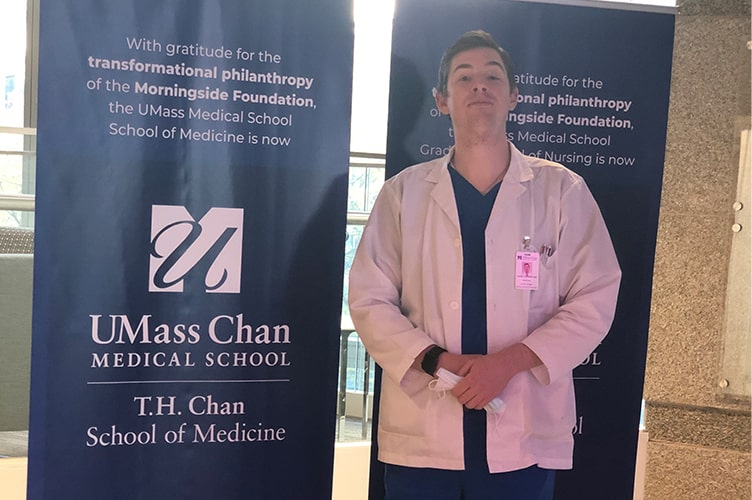Daniel Harrington
I did my clinical elective in Internal Medicine at the Pennsylvania Hospital. I had been home for the summer in MA, USA so I took the train to Philadelphia ahead of my clinical elective start date. I stayed a 15-minute walk from the hospital in a student accommodation-style hotel.
My clinical experience included being placed on one of the in-patient internal medicine teams. I was treated as an intern, meaning that I would independently see my assigned patients, come up with management plans for the day, and present this at rounds with the full team.
The attending physician would see the patients as well as make adjustments as necessary. I was the 'covering provider' for my patients, which meant that for any issue that came up, I would be the one to field the phone calls, pages, text messages and decide what to do. I could always ask for help if needed, but nonetheless it was a vast amount of responsibility. It really represented the first time I felt closer to being a doctor than a student.

The most pivotal learning experience came when I was called for a patient who was deteriorating. The nurse said, “He’s maxed on high flow, what do you want to do?” If it was an MCQ, or even a hypothetical question on an OSCE/long case, it really wouldn’t have been hard. Most upper years would probably get an MCQ on that scenario right – ordering VBG or ABG, CXR, consulting anaesthesia, and ultimately sending to ICU for intubation.
But in that moment, as I looked at that patient who had been fine that morning but was now suddenly unstable, the nurse looking at me asking what to do, it seemed worlds apart from any exam or tutorial that I had ever taken.
We’ve always been told since the beginning of our programme that we’ll need to make critical decisions, but it was something different to be standing there finally facing one of those decisions.

I imagine that is something that you can truly appreciate only by directly experiencing it, and having the experience of doing my SUBI in the USA afforded me the opportunity to do just that. It also allowed me to participate in medical care with a great degree of responsibility and autonomy. I intend to apply for my post-graduate training in North America so having the opportunity to experience the healthcare system first-hand will give me a distinct advantage.
It gave me invaluable insight into what the day-to-day job of an intern in the US will be like, and I will use that knowledge along with the time in medical school that I have left to prepare myself more optimally for those challenges. This insight would not have been possible without the clinical elective.
These experiences will be critical to the advancement of my career. Additionally, there is no replacement for the networking that is made possible by undertaking clinical electives at hospitals where one will be applying for post-graduate education.
During my time there, I not only worked with members of the medical team, but also participated in teaching sessions, grand rounds and daily conferences, which all afforded me the opportunity to meet more people working in the hospital and allow them to get to know me. The opportunity to do this for a month allows one to show more of themselves than is possible in applications or even interviews.

I received a grant from the RCSI Clinical Elective Fund which is supported by the alumni community. This was vital in allowing me the opportunity to pursue this clinical elective. Clinical electives in the USA generally cost several thousand dollars, especially at large well-known academic centres.
Given that finding accommodation and other costs of living are high in big cities, I’m not sure that I would have been able to manage those costs if the cost of tuition for the clinical elective had been added on top.
Daniel Harrington, Medicine
